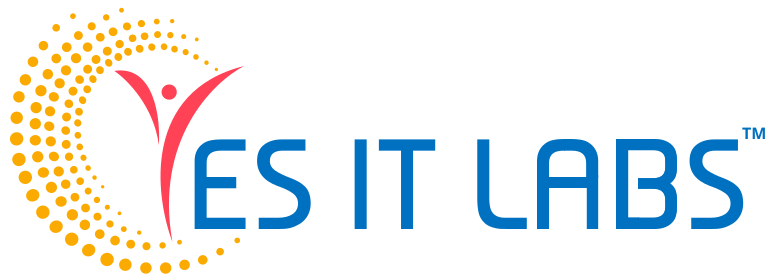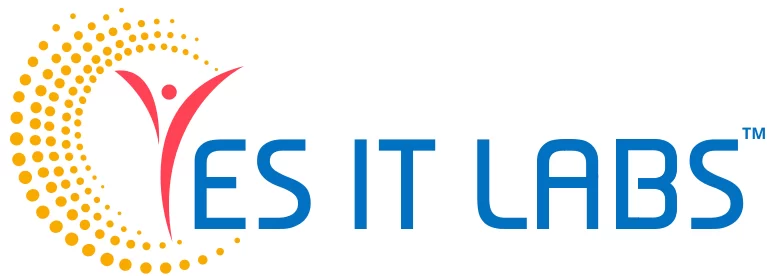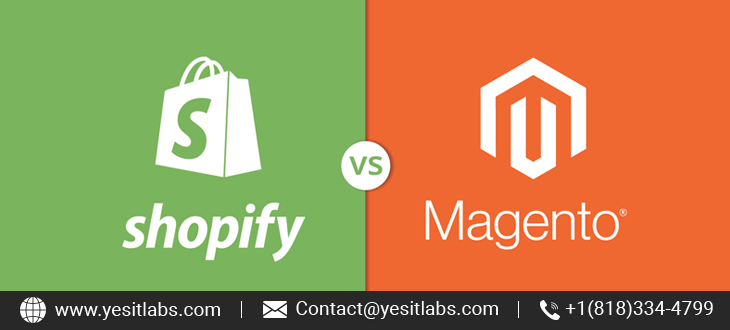Choosing the right eCommerce platform is one of the most critical decisions for any business aiming to establish a successful online presence. Among the top contenders, Magento vs Shopify for Ecommerce remains a widely debated comparison. Both platforms offer unique features, benefits, and challenges, making it essential to understand their differences before making a decision.
This comprehensive guide will help you compare Magento and Shopify based on their ease of use, pricing, features, scalability, security, and suitability for different business models. Whether you are launching a small online store or scaling an enterprise-level eCommerce business, this guide will provide you with all the insights needed to make an informed choice.
Understanding Magento and Shopify
What is Magento?
Magento is an open-source eCommerce platform originally developed by Varien Inc. and later acquired by Adobe. It is widely recognized for its flexibility, scalability, and extensive customization options, making it an excellent choice for businesses that require a tailored eCommerce solution.
With a robust set of features, Magento empowers businesses to build unique online stores that cater to their specific needs and branding.
Magento is available in two editions:
- Magento Open Source – A free, self-hosted version that provides essential eCommerce functionalities, ideal for small to mid-sized businesses looking for a customizable platform without licensing costs.
- Magento Commerce – A premium, cloud-based version that includes advanced features such as AI-powered analytics, customer segmentation, and dedicated support, making it a suitable option for large-scale enterprises that require high performance and security.
What is Shopify?
Shopify is a fully hosted, cloud-based eCommerce solution designed for ease of use, making it a popular choice for entrepreneurs and established businesses alike. It provides a streamlined way to create, manage, and grow an online store without requiring extensive technical knowledge.
Shopify offers a range of built-in tools, themes, and integrations that help businesses quickly launch an eCommerce website.
Shopify provides two main offerings:
- Shopify – A standard hosted eCommerce platform that allows business owners to set up an online store with various customization options, including themes, apps, and integrations. It is designed for small to mid-sized businesses looking for an all-in-one eCommerce solution.
- Shopify Plus – An enterprise-level solution tailored for high-growth businesses that require advanced features, automation, scalability, and dedicated support. It includes additional tools for managing complex operations, global selling, and high-volume transactions.
Magento vs Shopify for Ecommerce: Key Comparisons
Ease of Use: Which Platform is More User-Friendly?
When selecting an eCommerce platform, ease of use plays a significant role, especially for beginners and small business owners who may not have the technical expertise to manage complex systems.
- Shopify: Designed for simplicity, Shopify offers a drag-and-drop store builder, an intuitive dashboard, and pre-built themes that make it easy for anyone to set up an online store. The platform provides a user-friendly experience, with minimal setup requirements and built-in features that streamline operations such as inventory management, payment processing, and marketing integrations. Shopify’s 24/7 customer support and extensive app ecosystem further enhance its usability for non-technical users.
- Magento: While Magento provides greater customization, it requires technical expertise. Users need to handle hosting, setup, and development, making it more suitable for businesses with dedicated development teams. Magento is ideal for companies that require advanced functionalities, unique storefront designs, and seamless integrations with third-party services. Due to its open-source nature, it allows businesses to create highly tailored solutions, but this comes with increased complexity in setup and maintenance.
For beginners and small business owners looking for an easy-to-use eCommerce platform, Shopify is the ideal choice. It provides a straightforward setup, a user-friendly interface, and built-in tools that simplify the process of running an online store.
On the other hand, Magento is the preferred option for developers and businesses that require extensive customization and flexibility. With its open-source nature, Magento allows for a highly tailored eCommerce experience but demands technical expertise for setup and maintenance.
Pricing Comparison: Cost of Ownership
Understanding the total cost of ownership is crucial before selecting a platform.
| Platform | Pricing Model | Additional Costs |
| Shopify | Subscription-based (starts at $39/month) | Transaction fees, premium themes, apps |
| Magento Open Source | Free | Hosting, development, security, maintenance |
| Magento Commerce | Custom pricing (Enterprise-level) | Hosting, development, security |
While Magento Open Source is free, businesses must budget for web hosting, developer costs, security patches, and maintenance. Shopify, on the other hand, has a predictable monthly cost but charges transaction fees unless using Shopify Payments.
For businesses looking for a predictable and straightforward pricing structure, Shopify is the best choice, as it offers a subscription-based model with minimal additional costs.
On the other hand, Magento is ideal for businesses that require full customization, allowing complete control over features, design, and functionality, though it comes with additional expenses for hosting, development, and maintenance.
Features & Customization: Which Offers More Flexibility?
| Feature | Magento | Shopify |
| Customization | Extensive (Open-source, full control) | Limited (App-based customization) |
| Apps & Extensions | 5,000+ extensions | 100+ apps |
| Payment Gateway Support | 100+ options | Shopify Payments + third-party gateways |
| Multi-language Support | Built-in | Requires third-party apps |
| SEO Capabilities | Advanced SEO features | SEO-friendly but limited customization |
| Performance | Requires optimization | Optimized by default |
Magento is the best choice for businesses that require full control over their eCommerce store. Shopify, however, provides an easy-to-manage solution with a growing app ecosystem.
Magento is the ideal choice for businesses that require maximum flexibility and customization. As an open-source platform, it allows complete control over the store’s design, features, and functionality, making it perfect for businesses with unique requirements and development resources.
In contrast, Shopify is best suited for those looking for a plug-and-play solution. With its fully hosted environment, built-in tools, and an extensive app ecosystem, Shopify enables businesses to set up and manage an online store quickly without needing advanced technical expertise.
Scalability & Performance: Which is Better for Growth?
As businesses grow, their eCommerce platform must be able to handle increased traffic and sales volume.
- Magento: Scales well for enterprise-level businesses but requires dedicated hosting and optimization to maintain performance.
- Shopify: Offers built-in scalability, handling high traffic and transactions effortlessly through its cloud-based infrastructure.
For businesses looking for Magento development services in USA, Magento provides robust solutions tailored to large-scale operations. Its open-source nature allows developers to create highly customized and scalable eCommerce stores, making it an excellent choice for businesses that need unique features and functionality.
On the other hand, those seeking Shopify development services in USA can benefit from Shopify’s fully managed infrastructure, making store scaling easier. Shopify’s cloud-based architecture eliminates the need for manual server management, allowing business owners to focus on sales and marketing instead of technical upkeep.
Magento is ideal for large enterprises needing a highly customizable eCommerce solution, while Shopify is best for fast-growing businesses seeking a scalable, user-friendly platform with built-in features.
Security: Keeping Your Store Safe
Security is a top priority for any online business, as it directly impacts customer trust, data protection, and regulatory compliance. When choosing between Magento and Shopify, it’s essential to consider how each platform handles security.
- Magento: Being an open-source platform, Magento provides businesses with full control over security measures. This means store owners can implement custom security protocols, install additional security extensions, and ensure compliance with industry standards. However, this flexibility comes with added responsibility, as Magento users must manually manage security updates, patches, and compliance requirements to keep their store protected from potential vulnerabilities.
- Shopify: As a fully hosted solution, Shopify takes care of security on behalf of its users. It offers automatic security updates, built-in PCI compliance, and fraud prevention tools, making it a convenient choice for businesses that want a secure platform without the hassle of manual maintenance. Shopify’s security features are constantly updated, ensuring that stores remain protected against cyber threats with minimal effort from store owners.
Shopify is the best choice for businesses seeking a hassle-free security solution, as it provides automatic security updates, PCI compliance, and fraud protection without requiring manual intervention. On the other hand, Magento is ideal for businesses that require full control over their security settings.
While it offers greater flexibility, it also demands manual updates, compliance management, and technical expertise to maintain protection against cyber threats. Ultimately, Shopify ensures a more hands-off security approach, whereas Magento allows for tailored security configurations at the cost of increased responsibility.
Magento vs Shopify for Ecommerce: Which One Should You Choose?
Choose Magento If:
- You need a highly customized eCommerce platform.
- You have access to developers or want to hire expert web developers to build a tailored solution.
- You run a large business with complex requirements.
- You want full control over hosting, security, and custom features.
Choose Shopify If:
- You want an easy-to-use, hosted solution.
- You’re a beginner in eCommerce and need a quick setup.
- You plan to use dropshipping or integrate with multiple marketplaces.
- You prefer a fixed pricing model without dealing with server management.
Conclusion
Both Magento and Shopify are powerful eCommerce platforms, each catering to different business needs and goals. Magento is the preferred choice for enterprises and businesses that require a high level of customization, scalability, and complete control over their online store’s functionality. Its open-source nature allows businesses to develop unique, tailored solutions that align with their brand identity and operational requirements. However, this level of flexibility comes with the need for technical expertise, dedicated developers, and ongoing maintenance.
On the other hand, Shopify is an ideal solution for beginners, small businesses, and fast-growing brands looking for an easy-to-use, fully managed eCommerce platform. With its intuitive interface, built-in features, and seamless integrations, Shopify simplifies the process of setting up and managing an online store without requiring coding knowledge. Its hosted infrastructure ensures hassle-free security, performance optimization, and automatic updates, allowing business owners to focus on growth rather than technical complexities.
Ultimately, the right choice depends on the size of your business, your customization needs, and the level of control you require. If you prioritize ease of use, Shopify is the best option, whereas if you need a highly tailored eCommerce solution, Magento is the way to go.







